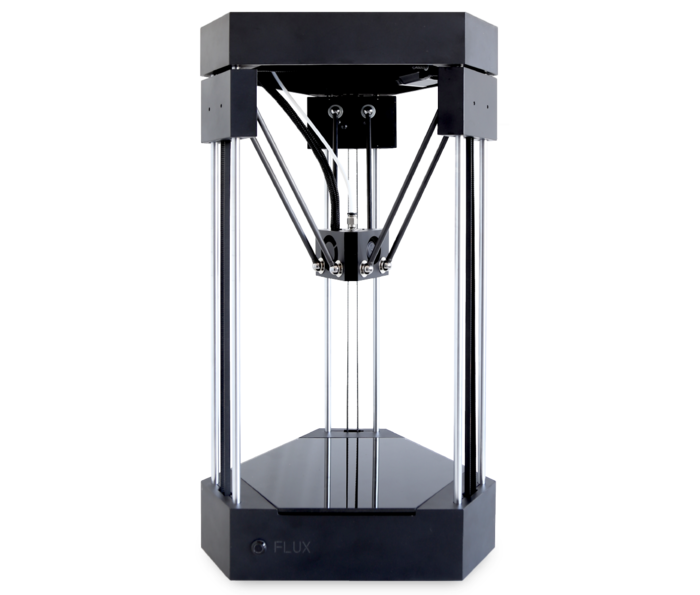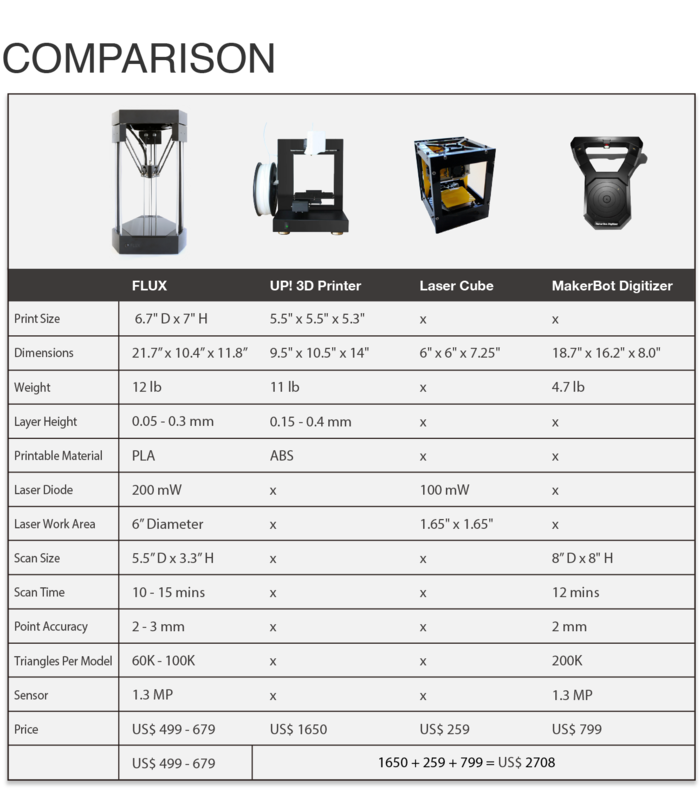FLUX All-in-one: The Swiss Army Knife of 3D Printing?

The FLUX offers a variety of tools in one system. Courtesy of FLUX.
Latest News
December 16, 2014
People who like to talk about additive manufacturing (including yours truly) tend to go on about the flexibility and freedom of design 3D printing brings to a business. AM is a transformative technology, and is shifting the manner in which products are manufactured by democratizing (another buzz word) the manufacturing process.
The FLUX All-in-one AM system is intended to increase the value of owning a 3D printer, by offering modular options that allow it to perform multiple jobs. Like AM itself, FLUX, produced by a Taiwanese startup of the same name, wants to be flexible in what it can offer, thus setting itself apart from the crowd.
 The FLUX offers a variety of tools in one system. Courtesy of FLUX.
The FLUX offers a variety of tools in one system. Courtesy of FLUX.FLUX is another AM system that, essentially, uses a fused deposition modeling-type process. It operates via a suspended extruder head similar to a fair number of other recent 3D printers, with a vertical build envelope. Pretty standard, really, which is unsurprising given that FLUX was developed using open source tools.
New ideas begin to appear when one examines the extruder head. It’s been designed to be simple to remove and replace with different heads that perform various functions. For now the options are limited to laser engraving and 3D printing, but FLUX is developing new heads to provide a dual extruder, a ceramics extruder and a pastry extruder.
FLUX also incorporates a 3D scanner into the build area. The build plate rotates once the object is ready to be scanned. It sounds simple, but the benefits could be profound for users looking for a single solution to multiple needs. Unfortunately, the laser isn’t accurate enough to produce scans with serious detail.

Continuing with the bad, FLUX comes as a kit, which I feel is a mistake. Makers may want to have to build something before using it, but small business owners and other less tech savvy individuals will be less excited. I’m also suspicious of the modular head system. It might be easy to replace the heads, but how will repeated fussing with those parts affect system operation and accuracy? Only time will tell.
With over $1.3 million in backing, FLUX has already well surpassed its Kickstarter goal of $100,000, so it should be showing up in homes and offices sooner rather than later. Below you’ll find its Kickstarter video.
Source: FLUX
Subscribe to our FREE magazine, FREE email newsletters or both!
Latest News
About the Author
John NewmanJohn Newman is a Digital Engineering contributor who focuses on 3D printing. Contact him via [email protected] and read his posts on Rapid Ready Technology.
Follow DERelated Topics






